Indigenous Knowledge offers valuable insights into Arctic freshwater ecology

Freshwater biodiversity in the Arctic is not fully documented or understood by scientists, particularly in remote and inaccessible areas. However, ongoing climate change is altering Arctic freshwater ecosystems – increasing water temperatures and ice melt rates, altering flow regimes and affecting animal migration routes. At the same time, increasing rates of human development and resource extraction – including mining and hydropower development – threaten water quality and habitat availability across many Arctic freshwaters.
The authors of a new study published in Freshwater Biology suggest that learning from Arctic Indigenous Peoples is critical in informing a better shared understanding of both the historical and current state of Arctic freshwater biodiversity in response to these pressures.
Lead author of the study, Dr. Jennie A. Knopp from Oceans North says, “In working with the Conservation of Arctic Flora and Fauna Freshwater Experts Network on determining the current state of freshwater biodiversity in the circumpolar Arctic based on existing data, we wanted to highlight the wealth of information contained within circumpolar Indigenous Knowledge bases. We wanted to bring awareness to and share existing documented Indigenous Knowledge on Arctic freshwater ecology. In turn, the Indigenous Knowledge revealed new species records not contained in any of the western scientific databases.”
Their study is the result of a systematic literature review summarising previously documented Indigenous Knowledge observations on Arctic freshwater biodiversity from Canada, Greenland, Norway, Sweden, Finland, Russia, and the U.S.A. (Alaska). Documents surveyed included peer-reviewed journals, reports, books, videos, theses and conference proceedings.

Their research highlights five key points. First, although Indigenous Knowledge of freshwater biodiversity has been passed on through oral traditions for millennia, it is only in recent years that this has been documented, both by Indigenous Peoples and scholars. The researchers collated 285 documents containing Indigenous Knowledge on Arctic freshwater biodiversity, largely related to populations of fish species and changes in freshwater habitat. This process revealed a wealth of Indigenous Knowledge on Arctic freshwater biodiversity. However, the researchers acknowledge that there is still significant Indigenous Knowledge on freshwaters which has yet to be documented or compiled, particularly in local and Indigenous languages.
Second, the Indigenous Knowledge consulted in this study improved Western scientific knowledge of freshwater fish species distributions. Seventeen species of fish, including the Asiatic trout, crucian carp and the critically-endangered European sea sturgeon, were recorded by Arctic Indigenous communities, but not found in fish monitoring data compiled by the Circumpolar Biodiversity Monitoring Program (CBMP). Indigenous Knowledge revealed information on both species disappearances and new species records over time, a difficult metric to document in large-scale scientific surveys, and one that is crucial for the early detection of invasive species and other climate change impacts on Arctic ecosystems.
Third, the Indigenous Knowledge compiled by the researchers showed significant trends in decreasing water levels in rivers and lakes, shorter periods of ice cover, decreasing ice thickness and increasing permafrost thaw across circumpolar regions. The researchers argue that such observations by communities who rely on Arctic freshwater systems are crucial in identifying key locations for conservation and management actions where possible.
Fourth, the researchers found that Indigenous Knowledge contributes wider spatial and temporal coverage of Arctic freshwater ecosystems than that surveyed by Western science. In particular, they found information on freshwater biodiversity from remote regions of circumpolar Alaska and Russia that are not well-documented in scientific studies. In addition, these records can provide longer-term indications of biodiversity trends than many Arctic scientific studies.
Fifth, the researchers emphasise that whilst their review identifies important ways in which Indigenous Knowledge can complement Western science to understand emerging themes in Arctic freshwater biodiversity, there remain a number of challenges for the future. One key point is that the data in the documents reviewed in this study are unlikely to capture the depth and breadth of Indigenous Knowledge on freshwater ecosystems held by knowledge holders. Similarly, there are significant ethical and methodological issues over how Indigenous Knowledge and Western science frameworks of knowing and ordering the world can be brought together in a respectful and productive manner.
Overall, the paper offers a valuable insight into the wealth of information Indigenous Knowledges can contribute to the study of Arctic freshwater biodiversity. “We hope this research will encourage limnologists to collaborate with Indigenous groups in their study areas in an attempt to start to understand the wealth of information on freshwater ecology and biodiversity held in the mind of the Indigenous Knowledge holders and to work in partnership with Indigenous experts,” Dr. Knopp concludes.
+++


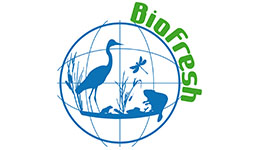


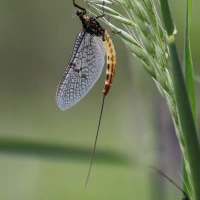
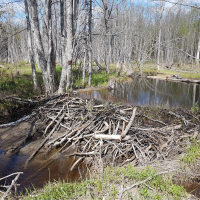
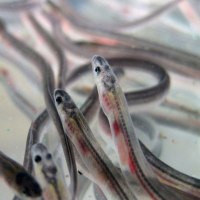

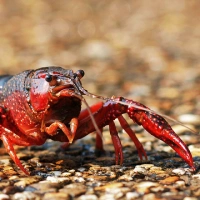





Comments are closed.